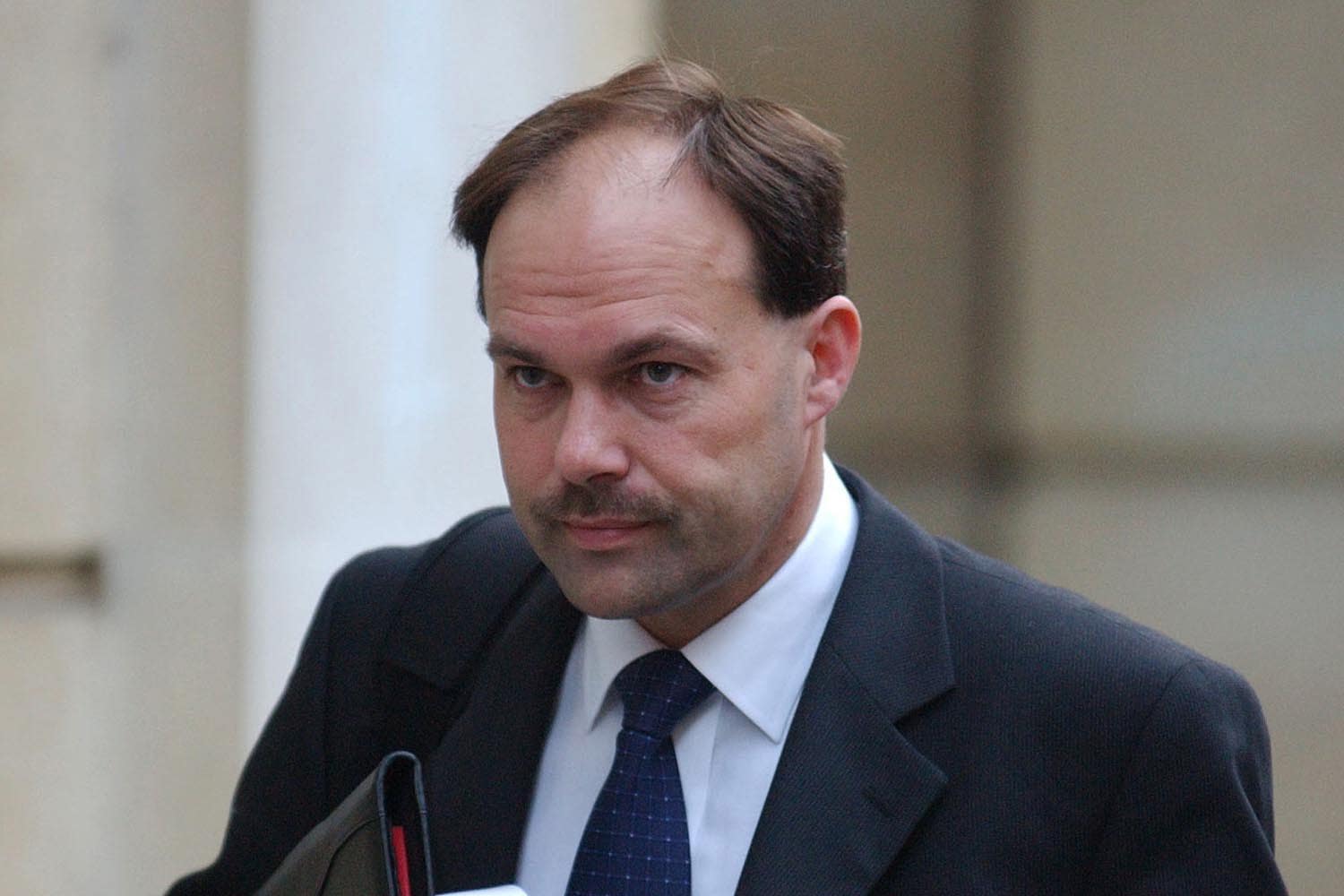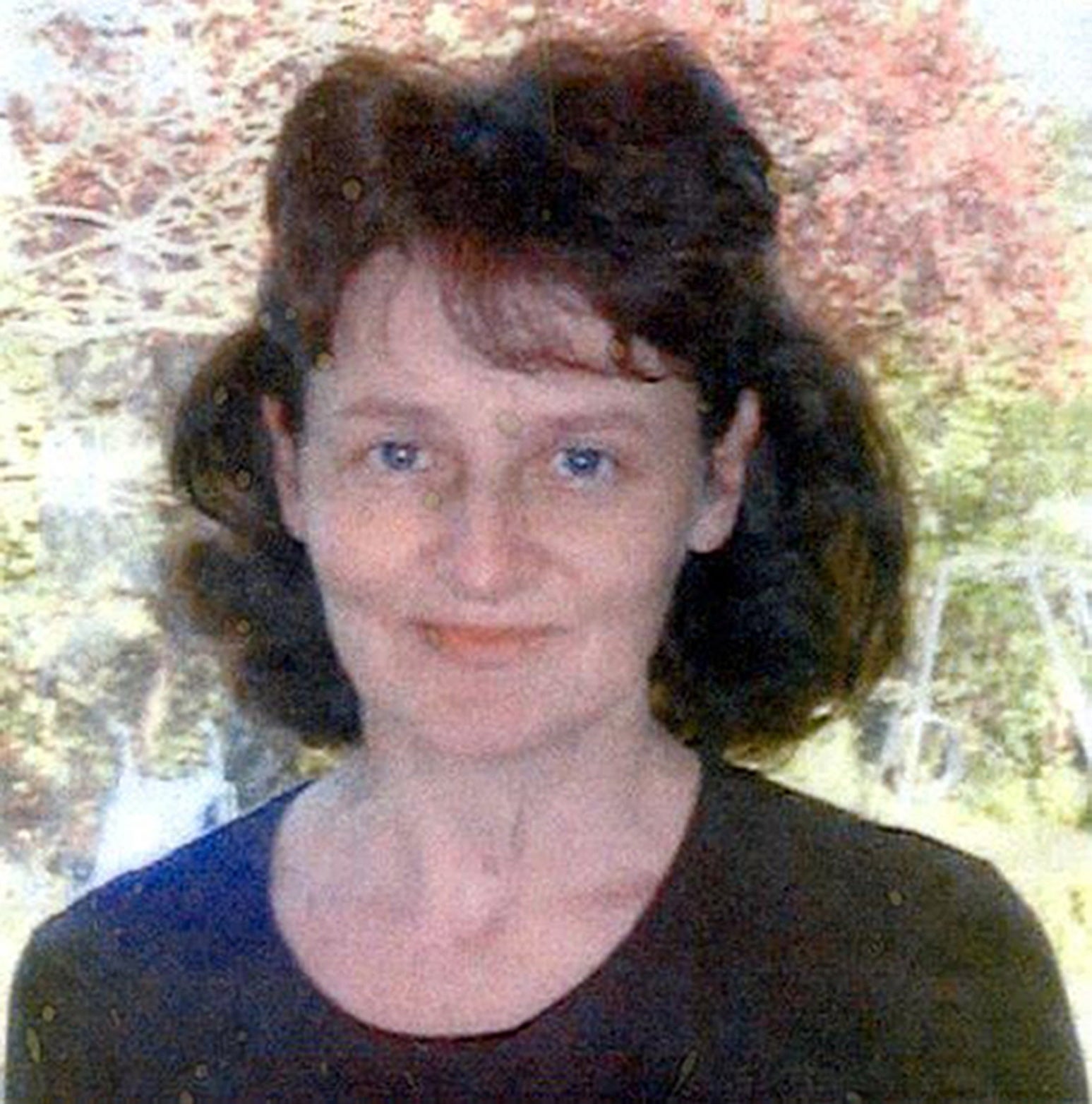Wife killer refuses to reveal where her body is: ‘I don’t even know if she’s dead’
Glyn Razzell was convicted of murdering his wife after she disappeared without a trace on her way to work in 2002

A man who murdered his wife has refused to reveal where her body is, claiming: “I don’t even know if she’s dead.”
Glyn Razzell was convicted of murdering mother-of-four Linda Razzell, 41, after she disappeared without a trace on her way to work in Swindon, Wiltshire, in 2002. Despite extensive searches, her body has never been found.
At a rare public parole board hearing today, the killer refused to reveal where he left her remains, despite pleas from their children to be able to hold a funeral.
He even claimed blood evidence was planted - with his estranged wife’s help - to “incriminate” him.
The latest hearing came after he was denied parole in 2021 under Helen’s Law, which aims to make it harder for inmates to be freed until they reveal what they did with their victim’s remains.
At the hearing, held at an open prison where Razzell, now 64, is serving his sentence, he was asked by a panel of experts if he could help police locate her body.
The panel asked: “Your children and Linda Razzell’s family have been grieving for many years and they want to arrange Linda’s funeral... Where can the police locate the remains of Linda Razzell?”
He claimed he shared his children’s “anguish” but added: “I don’t know where Linda’s remains are. I don’t even if she’s dead for sure. I am sorry if that upsets people.
“I do understand the anguish my children in particular and Linda’s family… I understand the way they feel. If there were anything I could do to help than I really would, particularly for my children.
“I don’t know where Linda’s remains are. I don’t even know if she’s dead.”
Razzell also told the parole board he hopes to find his wife if he is released from prison. Maintaining his innocence over her murder, he told the board: “I don’t know where she is. I would like to try and find her.”
He also claimed some of the evidence in a 1024-page dossier of evidence being considered by the parole board “paints a false picture” of him and his behaviour during the couple’s and during their acrimonious divorce.

Razzell denied allegations he abused his wife during their marriage, alleging he was the one “monstered” by her as their relationship broke down.
He also denied allegations of “emotional, financial and often physical abuse” of Mrs Razzell in the years leading to up to her death.
“The allegations aren’t true,” he said. “They were made by my wife who had a motive to make them and it saddens me it really upsets me… because of the serious harm they are doing to me because that’s what my children think of me.”
Asked about blood evidence matching Mrs Razzell found in the boot of a car he had borrowed, he told the panel: “I think it was placed there to incriminate me. It must have been with Linda’s involvement because it was fresh blood.
“So I suspect it was probably not Linda herself because that is not her character, I suspect it was someone cooperating with her.”
He insisted he was not victim blaming, adding that he believes his wife was alive during the first week after she disappeared.
The hearing was told Razzell is now working as a prison minibus driver in open conditions, driving inmates to work placements and hospital appointments.
He insisted he would comply with any licence conditions and vowed not to engage in intimate relationships, in response to concerns a new relationship could increase his risk in the community.
He said: “I am not going to have an intimate relationship. I know you have probably heard that hundreds of times before. I don’t feel I need one. I have been on my own for 15 years now.”
Asked if he feels guilt over the impact of his conviction on the four children he shared with Linda, he added: “I don’t feel guilt for it because it isn’t caused by me but I do feel their pain and their suffering and I carry that too.”
He is among the first inmates in history to face a public hearing under new rules to increase transparency around parole decisions, after similar hearings for notorious prisoner Charles Bronson in March and killer Russell Causley last December.
Razzell did not want to be seen on video but could be heard on a live stream of the proceedings being relayed to a public gallery at the Royal Courts of Justice in London.
Ahead of the hearing, Mrs Razzell’s partner at the time of her disappearance Greg Worrall, called for Razzell to stay behind bars.
“He shouldn’t qualify for parole. He has no remorse,” Mr Worrall told the Guardian.
“He’s not afforded us a funeral for Linda. Every day, he decides to commit the same crime again and again – preventing a lawful burial. Every day he prevents the burial should be another day on his sentence.”
On the day of her disappearance in March 19 2002, Mrs Razzell left her home in Highworth, Swindon, dropped her then fiancé Mr Worrall to work at the local Honda factory and her kids to school.
Her red car was later found in a side street near where she worked at Swindon College, along with her mobile phone which had been left on the ground.
Razzell was arrested and charged with her murder two months later after police found bloodstains matching Linda in the boot of a car he had borrowed.
At his trial in Bristol, Razzell was described as “a methodical man who planned everything”.
In 2019, police searched a country park in after a tip from a member of the public but did not find anything.
The parole board is expected to consider a range of factors, including the inmate’s behaviour in prison, whether they are likely to commit more crime or are a danger to the public, a victim impact statement and medical, psychiatric and psychological evidence.
Helen’s Law, also known as the Prisoners (Disclosure of Information About Victims) Act 2020, was named after insurance clerk Helen McCourt, who vanished on her way home from work in Billinge, Merseyside, in 1988.
The law was passed following a tireless campaign from Helen’s mother Marie McCourt, but came too late to stop Helen’s killer Ian Simms being granted parole. Simms died last year without ever revealing what he did with her body.
The hearing continues.



